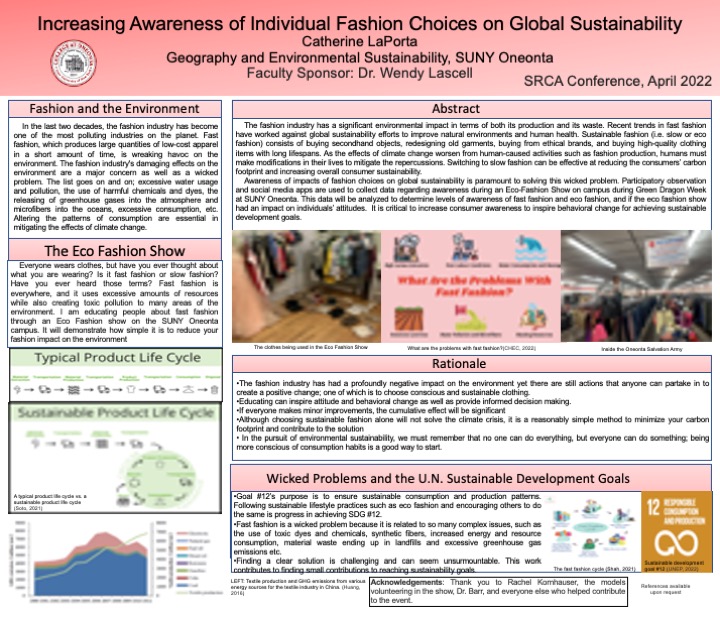
Catherine LaPorta
Increasing Awareness of Individual Fashion Choices on Global Sustainability
The fashion industry has a significant environmental impact in terms of both its production and its waste. Recent trends in fast fashion have worked against global sustainability efforts to improve natural environments and human health. Sustainable fashion (i.e. slow or eco fashion) consists of buying second hand objects, redesigning old garments, buying from ethical brands, and buying high-quality clothing items with long lifespans. As the effects of climate change worsen from human-caused activities such as fashion production, humans must make modifications in their lives to mitigate the repercussions. Switching to slow fashion can be effective at reducing the consumers’ carbon footprint and increasing overall consumer sustainability.
Awareness of impacts of fashion choices on global sustainability is paramount to solving this wicked problem. Participatory observation and social media apps are used to collect data regarding awareness during an Eco-Fashion Show on campus during Green Dragon Week at SUNY Oneonta. This data will be analyzed to determine levels of awareness of fast fashion and eco fashion, and if the eco fashion show had an impact on individuals’ attitudes. It is critical to increase consumer awareness to inspire behavioral change for achieving sustainable development goals.

